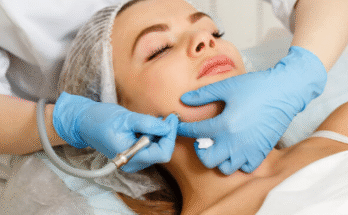Acne is one of the most common skin concerns in the world, and almost everyone experiences it at some point in their life. For many people, it starts during the teenage years and fades as they grow older. For others, it can linger into adulthood or even appear for the first time later in life. While mild breakouts are often manageable with over-the-counter products, there are times when acne can become more than a minor inconvenience. Knowing when to see a dermatologist can make a meaningful difference in how your skin looks and feels — and how confident you feel about it.
Understanding Acne and Its Causes
Acne develops when pores become clogged with oil, dead skin cells, and bacteria. Hormonal changes, stress, diet, and genetics can all play a role. It’s a complex condition that doesn’t have a single cause or a one-size-fits-all solution. Some people experience blackheads and whiteheads, while others deal with inflamed pimples, nodules, or cysts that can be painful and persistent. Because acne can vary so much from person to person, professional evaluation is often the best way to understand what’s really happening with your skin.
When Home Treatments Aren’t Enough
Many people start by trying drugstore cleansers, toners, or spot treatments that contain ingredients like salicylic acid or benzoyl peroxide. These can work well for mild acne, especially when used consistently and as directed. But if you’ve been using these products for several weeks or months without improvement, it may be time to consider professional help. Dermatologists can identify what’s not working and suggest targeted solutions that go beyond what’s available over the counter.
It’s also important to pay attention to how your skin reacts to the products you use. Sometimes acne worsens or becomes irritated by harsh ingredients, excessive exfoliation, or the wrong type of moisturizer. A dermatologist can help you simplify your routine and choose products suited for your skin type, minimizing irritation and supporting long-term improvement.
When Acne Becomes Painful or Deep
If your acne consists of large, deep, or painful bumps under the skin — often called nodules or cysts — it’s a clear sign to seek professional care. These types of breakouts often lead to scarring if not treated properly. Unlike surface pimples, they form deep within the skin and can be difficult to manage with topical treatments alone. Dermatologists have access to prescription options that can reduce inflammation, clear bacteria, and prevent new cysts from forming. Addressing these early can help protect your skin from lasting marks.
When Acne Is Affecting Your Confidence
While acne is a physical condition, it can also have emotional effects. It’s natural to feel frustrated or self-conscious when dealing with ongoing breakouts, especially if they appear on visible areas like your face, chest, or back. If acne is starting to impact your mood, confidence, or willingness to engage in social activities, that’s another good reason to schedule a dermatology appointment. A supportive dermatologist understands that clear skin is not just about appearance — it’s also about how you feel about yourself.
When You Notice Scars or Dark Spots
Even after breakouts heal, they sometimes leave behind scars or dark spots that can take months to fade. If you’ve noticed lingering marks that don’t seem to be improving, a dermatologist can offer treatments designed to smooth and even your skin tone. These might include prescription creams, in-office procedures, or gentle resurfacing techniques tailored to your skin’s needs. Addressing scarring early often leads to better results and helps you maintain a more even complexion over time.
Adult-Onset Acne and Hormonal Factors
Many adults are surprised to experience acne for the first time in their 30s, 40s, or even later. Hormonal changes — such as those related to pregnancy, menstrual cycles, or menopause — can trigger breakouts. In some cases, stress and lifestyle factors contribute as well. Because adult skin can be more sensitive or dry than teenage skin, treatments that once worked may now cause irritation. Dermatologists can help pinpoint the underlying causes of adult acne and recommend gentle yet effective treatments that respect the skin’s balance.
When You Have Other Skin Conditions
Sometimes what appears to be acne is actually a different skin condition that looks similar but requires a different type of care. Rosacea, folliculitis, and perioral dermatitis, for example, can mimic acne’s appearance. A dermatologist can distinguish between these conditions and ensure that you’re receiving the correct treatment. This prevents unnecessary trial and error and helps your skin recover more efficiently.
If You’re Unsure What’s Safe During Certain Life Stages
Some acne treatments are not suitable during pregnancy or while breastfeeding, and others may interact with medications you already take. If you’re uncertain about which options are safe, a dermatologist can guide you toward treatments that are both effective and appropriate for your current situation. This professional insight is especially important when managing acne alongside other health considerations.
The Benefits of Professional Treatment
Seeing a dermatologist doesn’t mean you’ll need complex or expensive procedures. In many cases, small adjustments to your skincare routine or the addition of a prescription cream can make a significant difference. Dermatologists can also help you develop realistic expectations, explaining that improvement takes time and consistency. Because acne treatment is highly individual, professional guidance helps ensure that your plan is designed for your specific skin type and lifestyle.
Dermatologists also monitor your progress and adjust treatments as your skin changes. What works at first may need to be modified later, and having a professional oversee your care means those adjustments are made with expertise. This approach reduces the risk of side effects and helps maintain healthy, balanced skin.
Building a Long-Term Skincare Routine
Beyond treating active acne, dermatologists can help you build a long-term skincare plan that supports your overall skin health. This might include recommendations for gentle cleansers, non-comedogenic moisturizers, and daily sun protection — all essential steps for maintaining clear skin. They can also educate you on lifestyle habits that support your skin, such as stress management, hydration, and balanced nutrition.
When in Doubt, Seek Guidance
You don’t need to wait until acne becomes severe to reach out for help. Sometimes a short consultation can provide valuable reassurance and direction. Whether your goal is to prevent future breakouts, reduce scarring, or simply understand your skin better, a dermatologist can offer guidance that’s personalized and evidence-based.
The Bottom Line
Acne is a normal and treatable condition, but that doesn’t mean you have to handle it alone. If your breakouts are persistent, painful, scarring, or affecting your confidence, it’s a good time to see a dermatologist. Professional care can help you find the right balance between effective treatment and gentle skincare, leading to clearer, healthier-looking skin over time.
Taking that first step toward professional help is not just about addressing acne — it’s about investing in your skin’s long-term health and your sense of self-assurance. With expert care and patience, clearer days are within reach.

